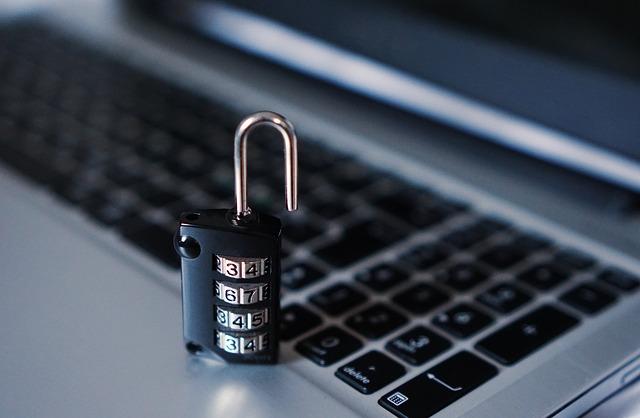Need To Choose A VPN For Travel? Read This Guide First
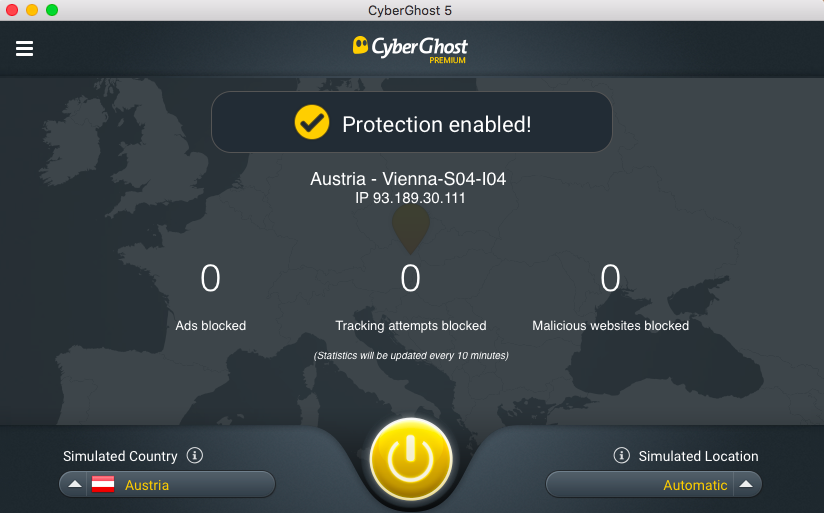
Many of you may already know something about VPNs and are probably curious to learn a little more about them.
If this is your first time hearing the term 'VPN' and you regularly browse the web while travelling, then you'll want to pay attention. VPNs are an essential item in the toolkit of any traveller that spends time online.
VPN software is perfectly legal (except perhaps in the UAE) and can be installed on many kinds of devices (laptop, desktop, phone, tablet etc.). Setting yourself up with a VPN can dramatically enhance your online privacy, security and browsing freedom.
But before we explain how a VPN works and what problems it can solve for travellers, let’s first start with a definition of what the term actually means.
What is a VPN? A definition.
VPN is an acronym that stands for ‘’Virtual Private Network’’. A VPN is a private, secure Internet connection that virtually links two points together.
VPN software uses the existing infrastructure of the public Internet and certain encryption technologies to create a very secure and private connection between your computer and the web.
VPNs were originally developed to allow remote workers or students to securely connect to corporate networks or universities and access the private resources within. In this way, a VPN makes it possible to extend a private network across a public network.
VPNs are still used for this purpose but in recent times, commercial VPNs have become highly popular with ordinary web users that are seeking more privacy, security and freedom online. This is the kind of VPN most travellers will be interested in.
How does a VPN work?
Without delving too deep into the technical details, we’ll try to explain the basic workings of a VPN. To understand how a VPN works, we need to first take a look at how your Internet connection normally operates.
Here is a simplified diagram on how you normally connect to the Internet:
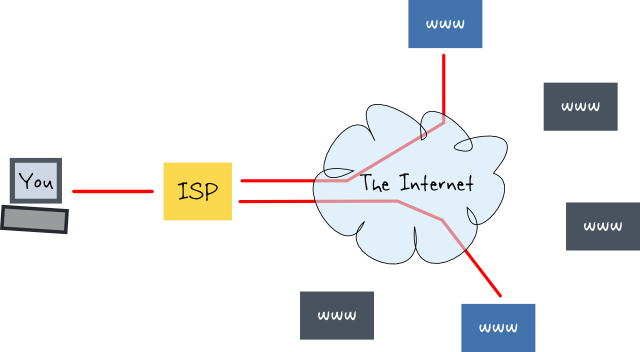
When you browse the Internet normally, you send out ‘requests’ to the ISP (Internet Service Provider). The ISP then forwards the request to the website you're requesting and then sends you back the information you requested, whether it be a website landing page, google search results or whatever.
All of your web traffic goes through the ISP and can be seen and read by the ISP. Your Internet router is also assigned a unique public I.P (Internet Protocol) address by your ISP, which can be used to approximate your location.
When you connect to a VPN however, things are rather different:
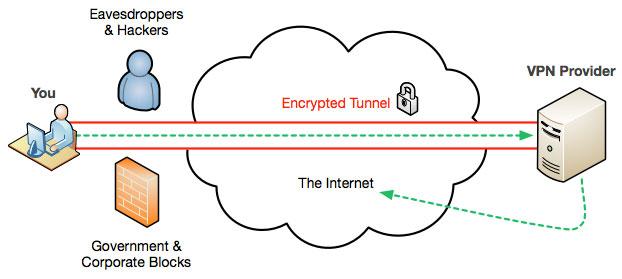
A VPN connection sets up a very secure ‘tunnel’ or data pipeline between your device (laptop, desktop pc, tablet, mobile etc.) and a special VPN server. Instead of your requests and search queries being directly sent out into the internet, they first get sent to the VPN server through this metaphorical tunnel.
During this first leg of the journey, the data is normally encrypted (turned into garbled nonsense) by the VPN technology, so that no hacker without the right decryption key could ever decipher the information you’re sending.
The data still passes through your ISP, but even your ISP has no idea what information you’re sending because it’s all encrypted.
Once data reaches the VPN server it is then forwarded from the VPN server out into the web, where it is usually no longer encrypted, unless it's sent to websites that use encryption.
All data that is then sent back to you from the web will first pass through the VPN server, which will encrypt the data and send it back to you via the same pipeline or tunnel.
As you browse the web while connected to the VPN, you are essentially accessing the internet through the VPN server. Your I.P address now becomes that of the VPN server, shielding your real I.P address from the websites that you visit. As far as anybody on the Internet is concerned, your public I.P address is that of the VPN server.
Why Do I Need A VPN When I Travel?
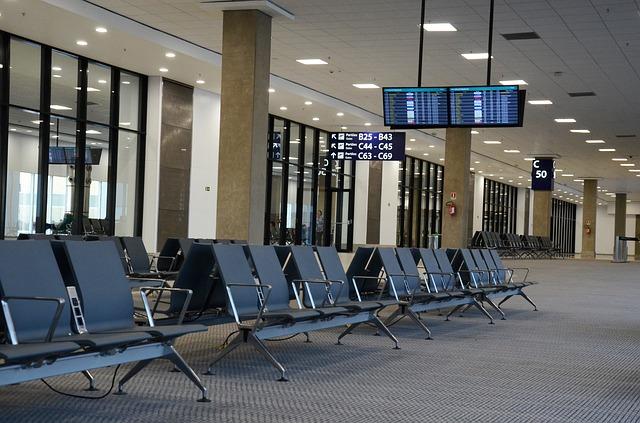
That’s a very good question. Obviously, if you don’t use the Internet when you travel, then you’ll have no need for a VPN. If you do access the web while travelling, there are actually four main reasons why you should have a VPN and they are:
1. To restore your online privacy.
2. To dramaticallyimprove your security when sending sensitive data over public Wifi or less secure Wifi networks.
3. To restore your access to geo-restricted or government censored content and services. This essentially amounts to restoring your online freedom.
4. To keep your online accounts running smoothly and prevent them from getting suspended or frozen by Paypal, Skrill, Google, Facebook etc, by allowing you to maintain a fixed public I.P address, even while your real I.P keeps changing.
1. Restoring online privacy
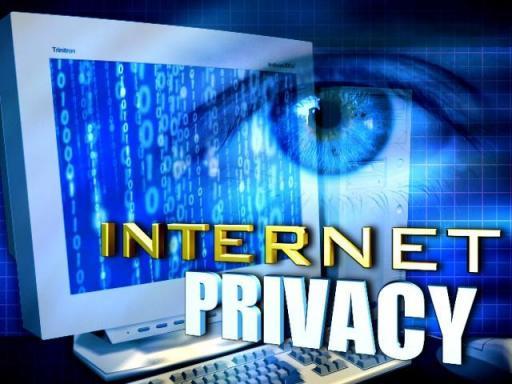
Whenever you’re travelling and you browse the web through a secure, password-protected Wifi Network, your online activities are still not confidential.
If you’re staying at a hotel or guesthouse with complimentary Wifi or using the free Wifi in a restaurant for example, the person who owns the Internet router can see and read all your web traffic. The ISP (Internet Service Provider) of that particular establishment can also see and read all your web traffic. There’s no real privacy, even when you’re not using public Wifi. Somebody else could potentially be watching.
When you connect to a VPN however, all of your data is immediately encrypted so that the owner of the router and the ISP can’t read it. They will still be able to see that web traffic is passing through but they won’t be able to decipher it.
The VPN server can still monitor and potentially log the details of your traffic however. That said, many of the VPN providers promise that they keep no usage logs (details of exactly what you’re doing on the web). Many claim to only keep connection logs (details of when you connected, session length etc.) It’s up to you whether you trust them on that or not.
2. Improve Online Security
.png)
Public or semi-public Wifi is everywhere these days; in airports, cafes, libraries, restaurants, train stations, you name it. If you're a person who travels a lot, you are probably exposed to public Wifi more than most. That is why you must understand the privacy concerns and the security threats that come with browsing the web on a public Wifi connection.
Now here’s the problem in a nutshell. Wifi uses special radio waves called ‘wifi waves' to transmit data. Unfortunately that means that when you use public Wifi, hackers can easily tune in and eavesdrop on much of the data being transmitted, in a similar manner to how you'd tune into a radio!
Interestingly enough, the hacker doesn’t even have to be in the same room as you. They can also eavesdrop on you from remote locations if they have detecting equipment that's sensitive enough.
So what kind of data can hackers see exactly? Believe it or not, when you use public Wifi, a hacker can easily recover many of your account usernames, log-in passwords and any other information that you send to unencrypted websites.
They can use a technique called ‘packet sniffing’ to capture all of this unencrypted data sent from your computer and later analyze all this data to find out all the passwords therein.
They can also trick you into connecting to an ‘evil twin’ hotspot. This is a fraudulent Wifi hotspot that imitates a genuine one, using the same network name. When you unwittingly connect to the evil twin hotspot, the hacker just waits patiently until you transmit your login passwords, credit card numbers and other sensitive information.
Not only that these things can happen, but they do happen to people… all the time. It therefore goes beyond a mere privacy issue; using public Wifi presents a very real security threat to every traveller.
So what if you avoid public Wifi and just confine yourself to using private, password-protected Wifi networks like those found in many hotels, guesthouses etc.? You still won’t have much privacy but will you at least be safe from hackers?
Well, data sent over private Wifi networks will be encrypted so that it can't easily be sniffed by someone outside the network that doesn't know the passphrase. However, somebody who already has access to the network (like another guest, the owner etc.), can still decrypt the sensitive data you're sending and eavesdrop on your session. Can you trust every guest at your lodging?
Another problem is that some of these private networks use a weak security protocol like WEP and even the more secure networks that use the WPA or WPA2 protocol can still be cracked by a hacker that has a little more time on their hands. Once a hacker gains access to the network, the data you're sending can be easily 'sniffed', as we already mentioned.
What you really need is a way to securely protect your confidential data from unscrupulous people, on all types of untrusted Wifi networks, whether they be public, semi-public or private networks.
And of course, that’s exactly what a VPN can do for you. By encrypting all of your web traffic with the powerful VPN encryption technologies, hackers will be forced to move on to the easier targets. They simply cannot read the sensitive data you’re sending because it’s garbled and they don’t have the decryption key to unscramble the data.
3. Bypassing Internet Censorship & Georestricted Content
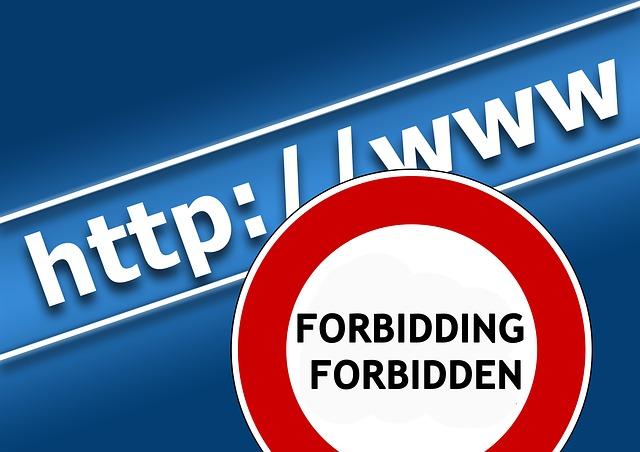
A big problem problem you’ll often face while travelling is being denied access to geo-restricted websites, videos, news articles and other online content.
For example, much content from BBC iplayer, ITV, Channel 4, Netflix, HBO, Hulu etc. is blocked when you’re overseas. Videos on VIMEO or Youtube also won’t play in certain countries due to copyright terms (Germany, we’re looking at you in particular). There are tons of examples of georestricted content.
Internet Censorship by the government or by ISPs is another problem. China has one of the most sophisticated Internet censorship systems in the world. Many travellers exploring China can’t access websites like facebook, youtube, twitter and google+. In fact, there are thousands of websites blocked in mainland China.
There are also many other countries apart from China that are notoriously bad for Internet censorship including Cuba, Myanmar, Iran, North Korea, Syria, Saudi Arabia, Tunisia etc…. and many of these countries are worth travelling in too!
Governments in many countries also block access to gambling websites and even when they’re not blocked, the gambling platforms themselves restrict access to their websites from certain countries (georestriction). This is a problem because sports betting offers and bonuses can be a lucrative form of online income for many travellers.
In countries like Morocoo & UAE, telecom companies have blocked free VoIP calling services like Skype, WhatsApp & Viber to try to force travellers to depend on them to contact their loved ones.
Luckily, a good VPN can easily restore your access to Government censored content, georestricted content and can help you to bypass VoIP calling restrictions.
For regaining access to government censored content and blocked VoIP calling services, it’s normally just a matter of getting past your ISP's blocks on those particular URLs or services. A VPN encrypts the data you’re sending so the ISP doesn’t know you’re trying to visit a website or using service that they’ve blocked.
To regain access to georestricted content, you just have to connect to a VPN server in the country where the content is actually viewable. So for example, to view Netflix from Europe, you would just connect to a VPN server in the U.S.A.
4. Keep Your Online Accounts Running Smoothly
For security reasons, many of your accounts are designed to freak out with frequent changes in your I.P address. Without a fixed I.P address, you risk having your accounts temporarily frozen or suspended when travelling and getting them unfrozen can sometimes be a nightmare, particularly with Paypal.
If you tend to travel very fast from city to city or from country to country and your I.P address changes frequently, it can upset Google, Facebook, Skrill, Paypal and numerous other accounts that you have to log into regularly. It’s a hassle to have to keep confirming your identity by answering security questions or even worse, having to make phone calls to recover your suspended accounts.
Thankfully, a VPN is perfect for dealing with this issue as well. By always connecting yourself to the same VPN server located in your home country while overseas, you can maintain a constant I.P address for all your account logins and ensure that you’re not raising any alarms. As far as the websites will be concerned, you’re still at home and nothing is amiss.
What about online anonymity?

It’s important to note that a VPN will not give you true anonymity on the web, despite the dishonest claims of many VPN service providers. You are still identifiable and traceable even when using a VPN and there are several reasons for this.
One reason is that the I.P address is not the only thing that can be used to help track a person. User behavior patterns, browser fingerprinting, flash cookies, zombie cookies and other techniques are used by authorities to trace an individual that is doing illegal stuff online. Even if your I.P address keeps changing through the VPN, the websites you’re visiting can still know that it’s you.
Also, your real I.P address is still known to the VPN provider. If you’re doing something highly illegal for example, and the authorities are determined to prosecute you, the VPN provider can be forced to start logging your activities and hand over your real I.P address to the authorities. No VPN provider will risk imprisonment or the ruination of his or her business to protect his or her customers’ identity.
To summarize then, a VPN brings a greater level of privacy, security, freedom and smoothness to your Internet browsing, but it does not guarantee you total anonymity. If you’re looking for anonymity, the best thing out there is Tor browser.
How To Choose A Good VPN
There are many VPN providers out there, all vying for your business but you should understand that they’re not all created equal. You need to exactly know what to look for in a VPN provider if you’re to make the right choice for your needs. A good VPN should do most of the following:
Offer a free trial or money-back guarantee:
It’s important that you can test out the VPN before you commit to any paid plans. Any major deal breakers should become apparent within the first few days.
Allow you to maintain acceptable Internet speeds:
It’s no secret that VPNs often slow down your Internet connection. They can sometimes speed it up too but that’s another matter. There are two reasons why VPNs can slow down your connection:
1.The process of encrypting and decrypting web traffic adds a delay
2.The data usually has to travel greater distances to first reach the VPN server, then the website, then get all the way back to your computer…
If you connect to a nearby website through a nearby server, you can expect maybe a 10% speed reduction under normal circumstances. Speed can take a much larger nosedive if the server and website are further afield.
You can therefore minimize the loss in speed by connecting to a VPN server that’s located as close as possible geographically to the website or resource that you’re trying to access.
That said, the speed can also vary greatly across different providers. This is due to factors like serving processing power, available bandwidth and the number of online users. Take a few free trials and see which providers come out on top by running speed tests.
Offer a wide variety of servers (endpoints):
A variety of servers in a wide variety of different countries is a very important thing to look for in a VPN. Why? Because if one server is excessively slow, unstable or malfunctioning, you still have plenty of other options to try.
Also, if connecting to one server fails to unblock certain restricted content, you can always try several others. If you need a VPN to unblock content in a specific country like the UK for example, make sure your VPN has servers in the UK.
Make sure also that the VPN has servers in your home country, as it keeps your online accounts happy when they see you logging in from home.
Overcome VPN blocks:
This is something you really need to think about if you’re going to countries like China, which have very sophisticated Internet Censorship regimes. Some countries have figured out how to block some VPNs. If the VPN provider claims that it’ll work in mainland China, then it’ll probably work virtually anywhere else.
Maintain a stable connection:
Although there can be many reasons for an unstable VPN connection, some VPN services seem to be consistently better than others at maintaining a stable connection once it’s established.
Lower quality VPN services can be prone to frequent dropouts so that you have to keep reconnecting to the VPN server. This can compromise your privacy if security features aren't in place and it's also just annoying.
Offer a choice of protocols:
There are many different VPN/encryption protocols (an in-depth subject in itself) but the open VPN protocol is widely considered to be the most secure and is the industry standard. It’s compatible with all VPN-capable devices (except for Blackberry devices).
Include safety features –
Even the best VPNs experience dropouts, where the connection suddenly drops while you’re sending data. This can potentially expose your real I.P address and any confidential data that you’re sending, if the VPN does not include safety features.
The main safety feature you want to look out for is a kill switch. All good VPNs have these. When your VPN connection drops, the kill switch will simultaneously shut down all web traffic from your device, keeping your privacy and security intact.
Other useful features that help with safety are the auto-connect and auto-reconnect features. The auto-connect feature means that you don’t need to always remember to manually connect to the VPN when you start up your system.
If the VPN connection drops suddenly during your session, the auto-reconnect feature ensures that it’ll continuously try to reconnect to the VPN server. It could save you during those times when you continued your online activity as normal, thinking the VPN was still connected when it actually wasn’t.
Be compatible with all your devices:
If you want to run the VPN on many different devices (Tablet, Laptop, Phone etc.), make sure the VPN is compatible with all the operating systems (Android, iOS, etc.) on those devices.
Allow simultaneous connections across multiple devices (at no extra cost):
An important thing to look for if you’re a device junkie and you tend to multi-task online. It's also important if you want several people to be able to simultaneously connect using the same VPN service. Some VPN providers won’t allow you to run the application on a second device until you upgrade to a more costly payment plan.
Take your privacy seriously –
So how do you know if a VPN provider takes privacy seriously?
A no usage logs policy is a good start. This is a guarantee from the provider that details of actual websites visited etc. are not logged. Most VPN providers do keep connection logs (like login time, session length etc.), even if they don't keep usage logs. The provider should also promise no real time monitoring of data that passes through the servers.
Another good sign is if they use shared IPs. In other words, several customers are simultaneously operating under the same I.P address, making it more difficult to link certain web activity to any particular individual.
Another thing to check is if you have the option to pay anonymously. VPNs that care about privacy allow their customers to pay by Bitcoin (most common method), by sending cash in the post or by other methods that improve anonymity.
Be aware that some VPN providers in terrorist fearing countries such as France and the UK are obliged by law to keep logs. If you take your privacy seriously, ensure that you choose a VPN provider that is not based in one of these countries.
Lastly, remember that it is down to a matter of trust in the end. You can never guarantee that a VPN provider will protect your privacy. There is a certain level of faith involved.
Provide good customer service:
VPNs are not the simplest things in the world and they do occasionally experience bugs or technical problems that need to be resolved with the help of a customer service team.
Some VPNs only offer ticket support, even for premium customers. Live chat is usually preferable to this and tends to get issues resolved faster.
Be easy to install and user-friendly -
Nobody wants a VPN that’s a headache to install or figure out how to use. Some VPNs can be a bit of a nightmare in this regard unfortunately.
Installation should involve a straightforward download from the web and running of the installation package. The whole process should be completed in a matter of minutes.
The user interface should be simple and easy to use. Choose your settings, pick the VPN server you wish to browse the web from and connect to it.
Include a few bells and whistles:
It’s nice if a VPN offers a few extra features. Some of these features help to protect you from other online threats and annoyances. Here are a few bonus features that are nice to have:
- Prevent Online Tracking
- Protect against malicious websites
- Block Ads
- Force HTTPS (secure encrypted data protocol)
- Data Compression (Improves speed)
Come at a reasonable price:
The price you pay for a VPN doesn’t really seem to make a huge difference to the overall quality of the service. Sure, some of the ultra cheap VPNs can have a few noticeable flaws and compromises. However, once you’re paying about $6 per month, you really should have everything you need, including a few bells and whistles.
What about free plans? - Some VPNs do offer an entirely free plan. These may be funded by advertising, revenue from other paid plans or if it’s the only plan, it may be funded by illegal practices like selling your data to advertisers.
The free VPN browser extension ‘Hola’ employs a unique solution; connecting its users to the web through other users' computers and selling its users computer resources and bandwidth (an extremely dodgy practice).
Free VPN plans are usually severely compromised. Long waiting queues to get connected, speed limitations, session length limitations, data usage caps and limited access to VPN servers are a few of the limitations that free VPNs are prone to. Some Free VPNs don’t even encrypt your data, making them equivalent to a proxy server. Many of them will also inject targeted ads into your browsing session.
Free VPNs are generally a lot less trustworthy than paid VPNs and you can’t really trust them not to sell or misuse your data.
If a VPN offers a free plan, think of it more as a way to test out the basic functionality of the VPN service and also as a backup for times when you can’t justify paying the monthly cost but still occasionally need a VPN with minimal functionality.
How To Use Your VPN
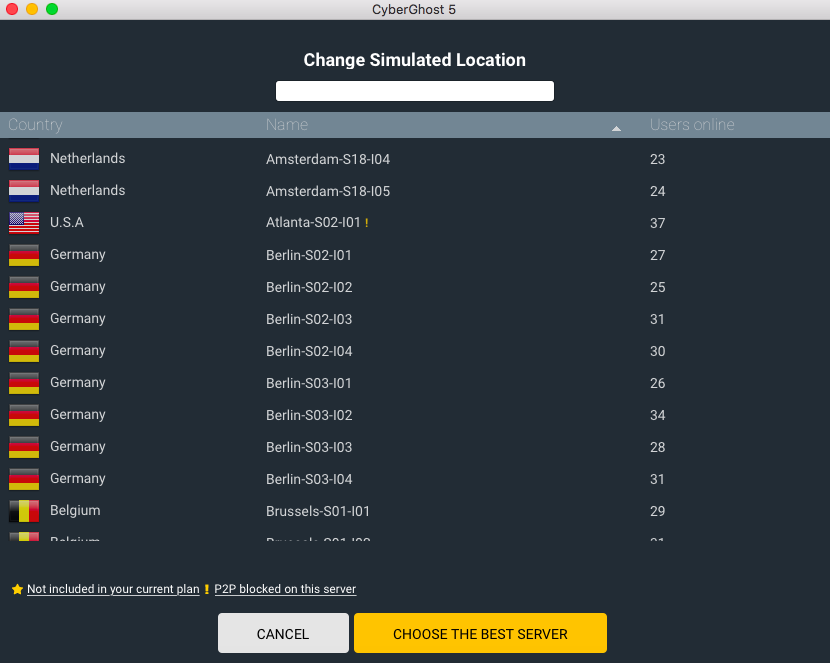
A VPN normally comes in the form of application that you download to your phone, laptop, tablet, desktop PC etc. After downloading the app, you must install it. Now that installation is complete, you will need an account to log into the app with.
You can normally set up a user account and payment plan on the VPN provider's website and you can then log into the app with your new account username and password. The app can usually be synced across multiple devices so you’re protected across the board.
Inside the app, you’ll be able to connect to a number of different servers or ‘endpoints’ in a number of different countries. The individual servers all have their own unique I.P addresses and you’ll be assigned the I.P address of whatever server you connect to.
Once you choose a general country (Spain, Singapore, Germany etc.) or specific server that you’d like to connect to and send the request, the software does the rest of the work and sets you up with a secure encrypted connection to browse the web with. It usually takes less than 30 seconds to establish the VPN connection.
Some tips for using the VPN when travelling:
- When your Internet connection is horrible, the VPN client may not be able to establish a connection or it may experience frequent dropouts. Don’t worry, this is normal. Just try to avoid sending sensitive data over untrusted Wifi networks when this is the case.
- If your VPN doesn’t have an auto-reconnect feature or kill switch, you should keep an eye on the status of the VPN connection at all times. If the connection drops suddenly, you should know about it so that you can cease all activity until you get it reconnected.
- To get the best speeds, connect to a VPN server that is as close as possible to the website that you’re trying to reach (you’ll have to guess the approximate physical location of its web servers). If you want to access UK content for example, connect to a UK VPN server.
How To Confirm If The VPN Is Working Properly
Before you start using a new VPN service in earnest, you need to ensure the VPN is working as it’s supposed to.
You can check if your I.P address has changed by visiting a site like http://www.whatismyip.com. It should display the I.P address of the VPN server and not your real I.P address.
Another thing you should check for is a thing called a DNS leak. This is when some of your requests get sent outside of the VPN tunnel in an unencrypted format, thus compromising your privacy.
To test this quickly, just visit https://www.ipleak.net. The site gives instructions for how to spot if you’re leaking and how to remedy the problem.
Firefox is more guaranteed than Google Chrome to prevent the leak. To fix the leak in Firefox, just type in 'about:config' (without the apostrophes) in the URL bar, hit enter and change the 'media.peerconnection.enabled' setting to 'False'.
VPN Recommendations
If you're having a hard time comparing all the different providers out there and deciding which one is best for you, don't despair.
We've done all the hard work for you and narrowed it down considerably to only the best VPN services in our article: The 5 Best VPNs For Travellers.
A final word
Thanks for reading folks. We hope this guide has helped you to better understand VPNs and their important role in travel.
If you have any comments, questions or concerns, please us a comment below and we'll get back to you as soon as possible.
You may also like:
JOIN OUR LIST
SUPPORT US
FOLLOW US
ABOUT US
Our names are Eoghan and Jili and we hail from Ireland and India respectively.
We are two ardent shoestring budget adventure travellers and have been travelling throughout Asia continuously for the past few years.
Having accrued such a wealth of stories and knowledge from our extraordinary and transformative journey, our mission is now to share everything we've experienced and all of the lessons we've learned with our readers.
Do make sure to subscribe above in order to receive our free e-mail updates and exclusive travel tips & hints. If you would like to learn more about our story, philosophy and mission, please visit our about page.
Never stop travelling!
FOLLOW US ON FACEBOOK
FOLLOW US ON PINTEREST
-lw-scaled.png.png)
